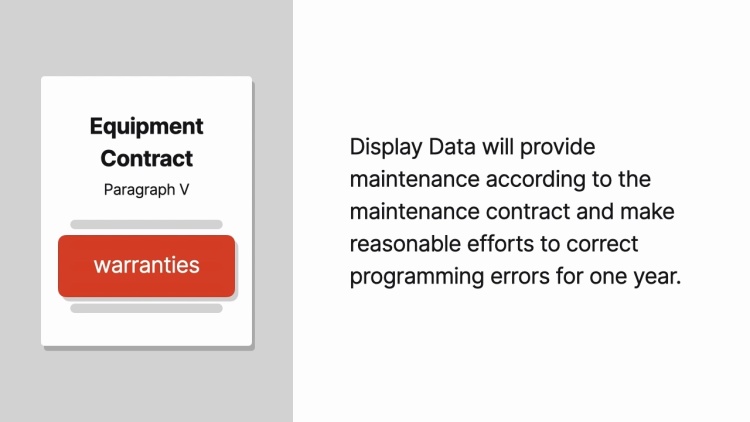Jaskey Finance & Leasing v. Display Data Corp.
United States District Court for the Eastern District of Pennsylvania
564 F. Supp. 160 (1983)
- Written by Mary Pfotenhauer, JD
Facts
Jaskey Finance and Leasing (Jaskey) and Samrus Corporation (Samrus) (plaintiffs) bought a computer from Display Data Corporation (Display Data) (defendant). The parties entered into two contracts, one relating to the computer equipment, programming, and installation services (equipment contract) and the other relating to maintenance of the computer system (maintenance contract). Both contracts provided that Maryland law would govern the parties’ agreement. Under paragraph five of the equipment contract, Display Data warranted that Display Data would provide maintenance service according to the terms and conditions of the separate maintenance contract and that, for a period of one year after programming the computer, Display Data would make reasonable efforts to correct any errors in the program. Paragraph five of the equipment contract and paragraph seven of the maintenance contract stated that, except as specifically provided in the contract, there were no warranties, express or implied. Paragraph six of the equipment contract was an integration clause, stating that the contract contained the entire agreement between the parties. Jaskey and Samrus claimed that the computer failed to operate properly and sued Display Data, alleging claims for breach of express warranty, breach of the implied warranty of fitness, and negligent design.
Rule of Law
Issue
Holding and Reasoning (Broderick, J.)
What to do next…
Here's why 907,000 law students have relied on our case briefs:
- Written by law professors and practitioners, not other law students. 47,100 briefs, keyed to 996 casebooks. Top-notch customer support.
- The right amount of information, includes the facts, issues, rule of law, holding and reasoning, and any concurrences and dissents.
- Access in your classes, works on your mobile and tablet. Massive library of related video lessons and high quality multiple-choice questions.
- Easy to use, uniform format for every case brief. Written in plain English, not in legalese. Our briefs summarize and simplify; they don’t just repeat the court’s language.





